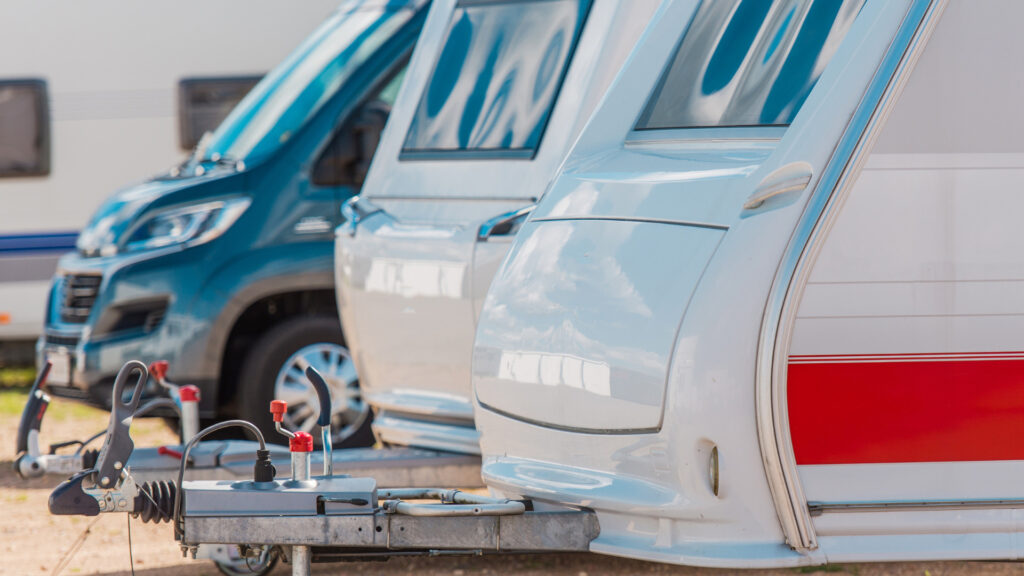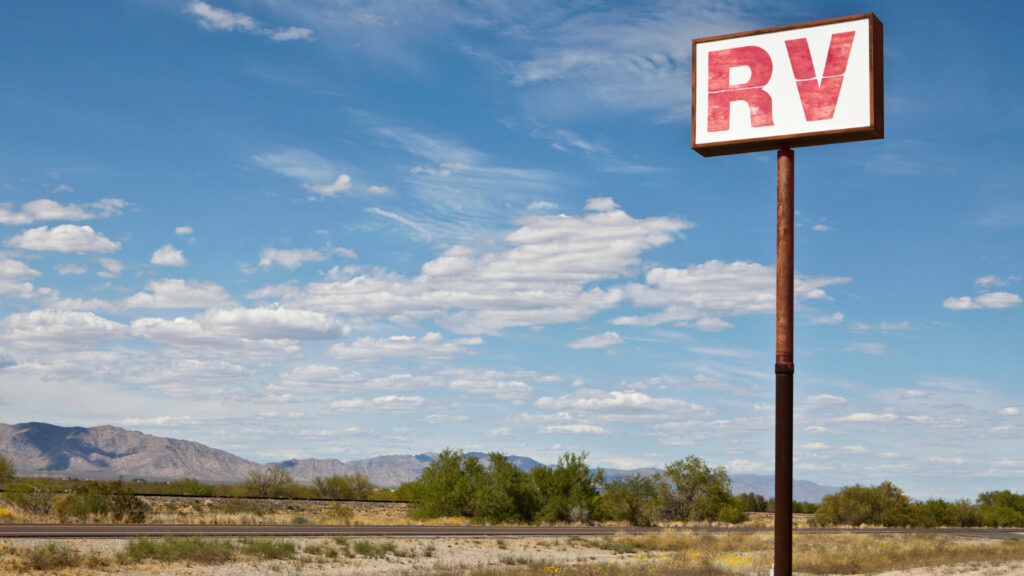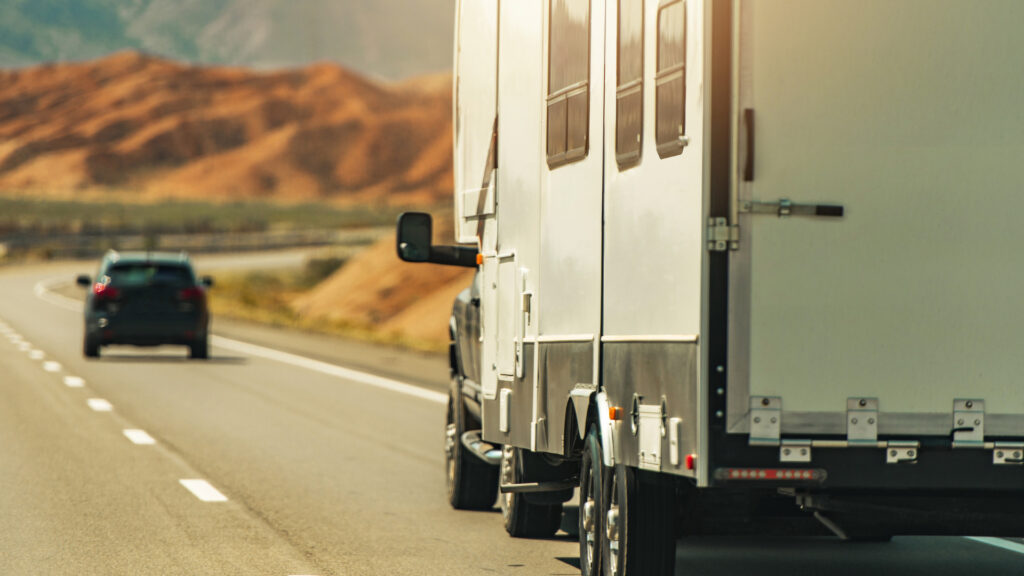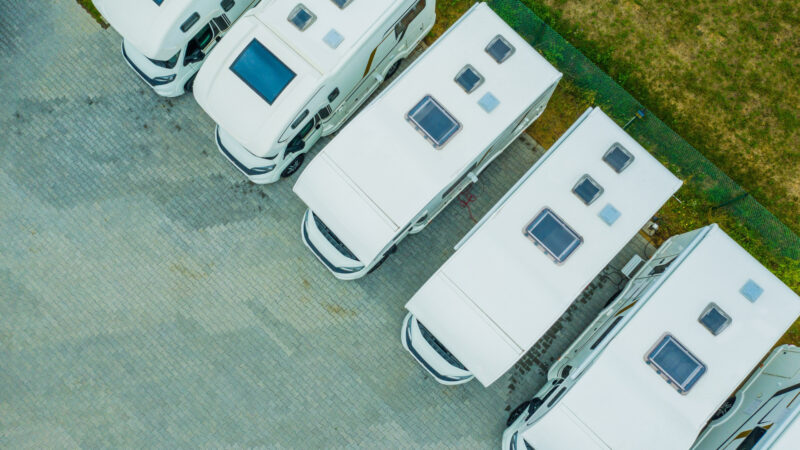Table of Contents Show
Financing an RV can be a headache, especially if you don’t have excellent credit. However, there are some non-traditional methods that you can use to finance your purchase.
One potential option for securing your next rig is an RV rent-to-own plan. You’ll hear many opinions regarding this type of financing when it comes to various expensive purchases.
Is this a good idea for an RV? Should you be considering this as an option for purchasing your next RV? Let’s look and see!
Can You Rent-to-Own an RV?
While not every RV dealership will offer a rent-to-own RV option for financing your purchase, it is an option that some do offer. You may also be able to find a private party that’s willing to agree to the deal.
However, it’s not an overly common method people use for financing their RV purchases. However, if you can find an RV dealership or private seller willing to offer the option, it can make your dream of owning an RV come true.
Pros of RV Rent-to-Own
You might want to consider an RV rent-to-own plan for several reasons. First, this could give you an incredibly low or even zero down payment.
However, it’s typical for a buyer to pay the first and last month’s rent as a down payment when purchasing an RV on a rent-to-own plan. Instead of needing to pay several thousand dollars down, you could instead pay substantially less.
Another benefit is that you’re not going through a bank for financing. This means you may not need to have an off-the-charts credit score.
A seller may agree to go through with a deal even if you have a negative mark or two on your credit history. While banks may not be willing to take the risk, a private seller or RV dealership may be accommodating.
The terms of a rent-to-own transaction are often much more negotiable than standard financing options. If you’re a smooth talker or good at negotiating, you may be able to work out a pretty sweet deal that both you and the seller are happy to agree to.
You can often return the RV with a rent-to-own deal if things don’t work out. You may lose whatever money you’ve paid so far, but it could be better than the massive depreciation hit many RVers experience from owning a rig for several years.

Cons of RV Rent-to-Own
While there are many reasons why you might want to consider a rent-to-own deal for your RV, there is a dark side to these deals. First, the interest rate on these deals can be extremely high.
These deals are riskier for the owner, meaning they will charge a higher interest rate to offset that potential risk. You should familiarize yourself with the specifics of your contract to avoid making a bad financial decision.
Much of the phrasing in these deals puts the maintenance and repairs on the shoulders of the renter. This means if anything were to go wrong or any damage were to occur to the rig, it would come out of your pockets.
If you’ve spent much time around RVs, you know it’s not uncommon for things to break on them. Some repairs can be costly, and if you’re already tight on cash, it can feel like you’re dumping money into a money pit.
Finally, by the time you own the RV outright, you’ll pay substantially more for the RV than it was worth. The increased interest rate and any fees associated with the deal will likely be substantially more than the actual value of the RV.
When you combine that with the massive depreciation RVs experience, they’re typically a terrible financial investment.
What to Look for in RV Rent-to-Own Contract
If you’re considering an RV rent-to-own contract, there are some things to consider.
You want to ensure you look at the fine print regarding several key areas. Let’s look at what you should look for when reading your RV rent-to-own paperwork.

Deposits and Late Fees
One of the first things you need to look at is how much money you’ll be paying in deposits and how much you’ll be charged if you are ever late with your payment.
If your contract doesn’t explicitly spell this out for you, walk away from the deal.
The cost of these fees is significant and could make or break your deal. You don’t want to sign your name on the dotted line and then discover you don’t have the cash on hand to pay a deposit or that a late fee is substantially more than you anticipated.
Monthly Payments and Total Payout Cost
Another important factor to see in a contract is how much your monthly payment will be and the total payout cost of your contract. Knowing how much you will be paying for the RV is essential.
Don’t agree to any deal that cannot explicitly tell you how much you are paying for the RV over the life of the deal. Just because you can afford the monthly payment on the RV doesn’t mean you can afford the RV.
Financing an RV for 20 years may make it affordable right now, but that RV will be worth a fraction of its original value in a matter of years. However, depending on how much you’re paying, you may still own more than what it’s worth.
Length of Contract
The contract should spell out the length of the contract. You should know when you will make the last payment and how long it will take for you to own the RV outright.
Don’t sign any paperwork without knowing this date. Both you and the seller need to understand how long the contract will be and when you will have fulfilled your end of the contract regarding finances.
You want to know any hidden fees or penalties in your deal. Some deals may even penalize you if you pay off the loan early. If that’s the case, you want to know it on the front end instead of when you pay off the loan.
Make sure you ask and that the contract explicitly states any hidden fees or penalties that are a part of the deal.
Insurance Requirements
You’re going to need to carry insurance on your RV. However, you need to know what the financier requires for your insurance coverage.
You’ll likely need a specific type of insurance covering the full cost of replacing the RV if something major happens while renting it.
Is It Hard to Get Financed for an RV?
Getting financing for an RV is typically harder than getting it for a house or even a vehicle. This is because an RV is typically considered a luxury or recreational purchase. It’s not necessary to have an RV. Banks will look more closely at your finances to make sure you can actually afford the purchase.
Many people want to hit the road and travel full-time in their RV. However, this can be very difficult, especially if you already sold your home. Banks often hesitate to finance an RV they know will be used for full-time living.
This is typically because they won’t have a permanent address to come looking for the RV should you stop paying.
If they need to repossess the rig, it could be anywhere in the country, and they won’t know where to find you. However, some banks will offer the deal but charge a slightly higher interest rate.
Keep in Mind: RV loans are a great way to finance an RV, but you’ll want to Avoid Mistakes when signing up for a loan.
What Credit Score Is Needed to Buy a Travel Trailer?
You need a decent credit score to buy a travel trailer. The more expensive the RV, the better the credit you’ll need to secure financing. If you want the best chance for funding, you’ll want a credit score of at least 660 to 700.
While it’s not impossible to get a loan for an RV with a credit score below 660, it’s not nearly as easy. You can find some dealerships and banks that will work with customers with lower credit scores.
However, these deals may require a larger down payment or charge a higher interest rate.
Where Can I Find a Rent-to-Own RV?
The best way to find a rent-to-own RV is to call your local dealership. If they don’t offer this type of deal, they may know somewhere or someone that does.
If you can’t find a dealership that offers this, you may need to search through private sellers. However, many private sellers will likely balk at the idea as they simply want to sell the rig and forget about it.
It may not even be possible since they’ll need to pay off their loan.
Pro Tip: Are you wanting to rent a small RV for a road trip? Here’s Where To Find Small RV Rentals You’ll Love!

RV Rent-to-Own Can Pay Off in the Long Term
An RV rent-to-own deal can be a good deal for some buyers. It can open up the possibility of owning an RV to more people who wouldn’t be able to otherwise.
You must make sure you are familiar with the specifics of your deal. If it works for you and your situation, then go for it. However, make sure you are aware of any risks you are taking before signing any paperwork.






